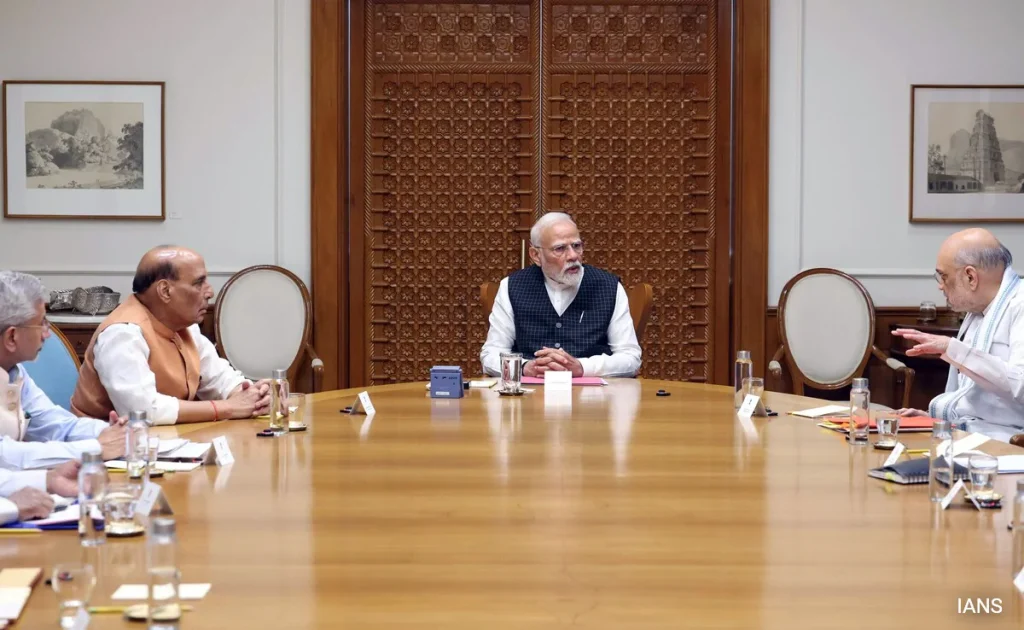Syllabus:
GS2: Structure, organization and functioning of the Executive and the Judiciary
Context:
In response to the terrorist attack in Pahalgam (Jammu and Kashmir), the Cabinet Committee on Security (CCS) was convened and announced a series of extraordinary retaliatory measures against Pakistan.
Key Decisions by the CCS
- Suspension of the Indus Waters Treaty: India will suspend the decades-old treaty governing water-sharing with Pakistan.
- Downgrading of Diplomatic Relations: India will reduce its diplomatic mission strength in Islamabad.
- Cancellation of SAARC Visas: All visas granted to Pakistani nationals under the South Asian Association for Regional Cooperation (SAARC) scheme will be cancelled.
- Closure of Attari-Wagah Border: The land border crossing between India and Pakistan will be shut.
About the Cabinet Committee on Security (CCS)
- The Cabinet Committee on Security (CCS) is a key decision-making body in the Government of India, primarily responsible for matters related to national security and defence.
- A committee comparable to the current CCS structure was first formed in Independent India in 1947 by then-Prime Minister Jawaharlal Nehru.
- The first emergency meeting of this committee was reportedly called during the Indo-Pak War of 1947–48.
- It was reportedly chaired by Prime Minister Jawaharlal Nehru with Home Minister Sardar Patel and Defence Minister Baldev Singh as its members.
- It was after the 1999 Kargil War that the committee evolved to adopt the present formal structure of the Cabinet Committee on Security and became a high-powered committee for defence and national security.
- Composition:
- Chairperson: Prime Minister of India
- Members:
- Minister of Finance
- Minister of Defence (permanent invitee to the panel)
- Minister of Home Affairs
- Minister of External Affairs
- The National Security Advisor (NSA) acts as secretary-level coordinator on matters within its purview.
- Additional Attendees (as required): Defence Chiefs and senior bureaucrats may attend depending on the agenda.
Key Responsibilities:
- National Security: Debates and discussions on security-related issues, Major decisions on internal and external security and Law and order issues.
- Defence: Approval of defence-related expenditure and Policy decisions concerning defence and armed forces.
- Foreign Affairs: Security-related foreign policy matters.
- Appointments: Significant appointments within national security institutions.
- Atomic Energy: Matters concerning the use and control of atomic energy.
PYQ: Why do you think the committees are considered to be useful for parliamentary work? Discuss, in this context, the role of the Estimates Committee. (2018)

